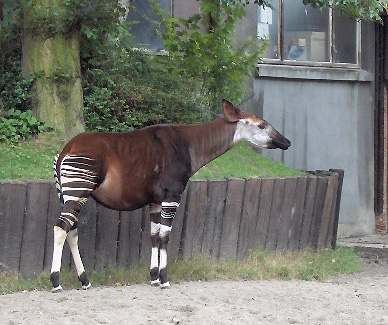A Markdown-based Website generator with awesome features. Usage:
>npm install -g dokapi
>dokapi -i my/input/folder -o my/output/folder
Options:
-ior--input: path of input folder.-oor--output: path to output folder.-tor--type: type of desired output (siteorpage, default:site).-wor--watch: keep running and dynamicly regenerate output when input changes (watches input folder for changes).-cor--create-missing: automatically create missing referenced markdown files.-ror--refresh-project: force to re-download in code project used to extract code comments (cached by default)
- JSON-file configuration (a single
dokapi.jsonfile to configure everything); - Automatic menu generation (Order of items in menu is defined in a JSON file);
- Stable URLs (Even when files get moves and/or renamed);
- Variables interpolation with
{{mustache}}syntax (use variables in your markdown files); - Variable definition in your code (define variables in special
@dokapicomments in your code); - Uses marky-markdown to emulate Github-style markdown rendering;
- Code-coloring down with Highlights, enables easy CSS customization;
- Generate multi-page or single-page site with the same content;
- Inject code files in your markdown with
{{file:my_file.js}}or{{editfile:other_file.sh}}; - Sanity checks everywhere (never have a broken link of missing image in your site);
- Watcher to dynamically re-generate your site when your content changed;
All paths are relative to the folder in which dokapi.json is located.
Example:
{
"name": "My Project Name",
"project": "[email protected]:MyOrganisation/my-project.git#my-branch",
"variables": {
"my.variable.1": "foo",
"my.var.2": "bar baz"
},
"assets": "media",
"numbering": true,
"externalLinksToBlank": true,
"siteTemplate": "site-template.html",
"pageTemplate": "page-template.html",
"main": {
"content": "main.md"
},
"index": [
{
"name": "Getting started",
"children": [
{"name": "Downloading", "key": "download", "content": "getting-started/download.md"},
{"name": "Installing", "key": "install", "content": "getting-started/install.md"}
]
},
{
"name": "Audit trail",
"content": "audit-trail.md"
}
]
}name(required): Name of the project (used as title of main entry);variables(required): A map of variable definitions;assets(required): Relative path to assets directory (used for CSS etc.), will be copied as-is;siteTemplate(required): Path to HTML template used fortype = "site"(multi-page);pageTemplate(required): Path to HTML template used fortype = "page"(single-page);main(required): Description of main site entry;main.content(required): Path to markdown file of main entry;previousLink(default:"Previous"): Text used in link to previous entry (whentype = "site");nextLink(default:"Next"): Text used in link to next entry (whentype = "site") ;main.name(default:"Introduction"): Name of main entry in site-menu;project: GitHub-style URL or relative path to source-code project;skipProjectVariables: (default:false): Prevent project variables (in@dokapicomments) from being extracted;numbering: Whether to use ordered (<ol>) or unordered (<ul>) tags when generating the site-menu;externalLinksToBlank: Whether to open external links in a new tab;index: Content structureindex.*.name(required): Name of the entry;index.*.key: Key of the entry (when left out, will use lowercase name with all special chars replaced by hyphens);index.*.content(optional if the entry has children): Path to markdown file with content of the entry;index.*.hidden: Whether to hide this entry (and its potential children entries) from the site-menu (internal links to this entry will work);index.*.children: Children entries to current entry;index.*.children.*.name(required): Name of the entry;index.*.children.*.key: Key of the entry (when left out, will use lowercase name with all special chars replaced by hyphens);index.*.children.*.content(required): Path to markdown file with content of the entry;
"variables": {
"version": "1.2.3"
}will replace all {{version}} tags in all Markdown files and HTML templates.
Declare a source project in the configuration file like this:
"project": "[email protected]:Linkurious/Dokapi.git#main"
Dokapi will extract all specially formatted comments from the code:
/**
* @dokapi my.variable.name
*
* This is how to use the API:
* ```js
* // a code example
* var a = 123;
* bar b = myFunction(a, 0.5);
* ```
*/All variables will be available for injection:
# Documentation about my API
This API is awesome.
{{my.variable.name}}Automatically defined variables:
entry.key: Key of the current entry (as defined in JSON file);entry.title: Title of the current entry (as defined in JSON file);entry.root.path: Relative path to root site directory for current entry;entry.menu: Inf the entry has children, list with links to children entries;
With type = "site":
entry.previous: HTML link to previous entry (text can be set usingconfig.previousLink);entry.next: HTML link to next entry (text can be set usingconfig.nextLink);entry.html.body: (in HTML template only), HTML of current entry;menu: (in HTML template only) HTML of current menu;
With type = "page":
body: (in HTML template only) HTML for all combined entries;
If you reference a code project, the following variables will be extracted from package.json:
package.name;package.description;package.version;package.license;
Keep code and text separated by leaving your code examples in files separate from your markdown file. Inject the content of a code file in your Markdown file with this easy syntax:
{{file:file.js}}for a<code>block;{{editfile:file.js}}for a<textarea>block.
Paths are relative to the markdown file containing the reference.
Variable in injected code files are interpolated.
Dokapi checks for everything that could go wrong with your documentation.
- Checks for broken internal links;
- Checks for missing images;
- Checks for potentially illegal image file names (enforce safe chars and no spaces);
- Checks for internal link collisions (multiple entries with same key);
- Checks for broken variable references (used but not defined, defined bot not used);
- Checks for unused code-block variables (defined in code but not used in site);
- Checks for unused markdown files (not referenced in structure);
- Checks for missing injected files (
{{file:missing_file.js}}and{{editfile:missing_file.js}});
Use the -w flag to re-generate the site dynamically when anything in the input folder changes.
Example:
>dokapi -i my/input/folder -o my/output/folder -w
Watched folder changed...
* Generated in 1.00s :)